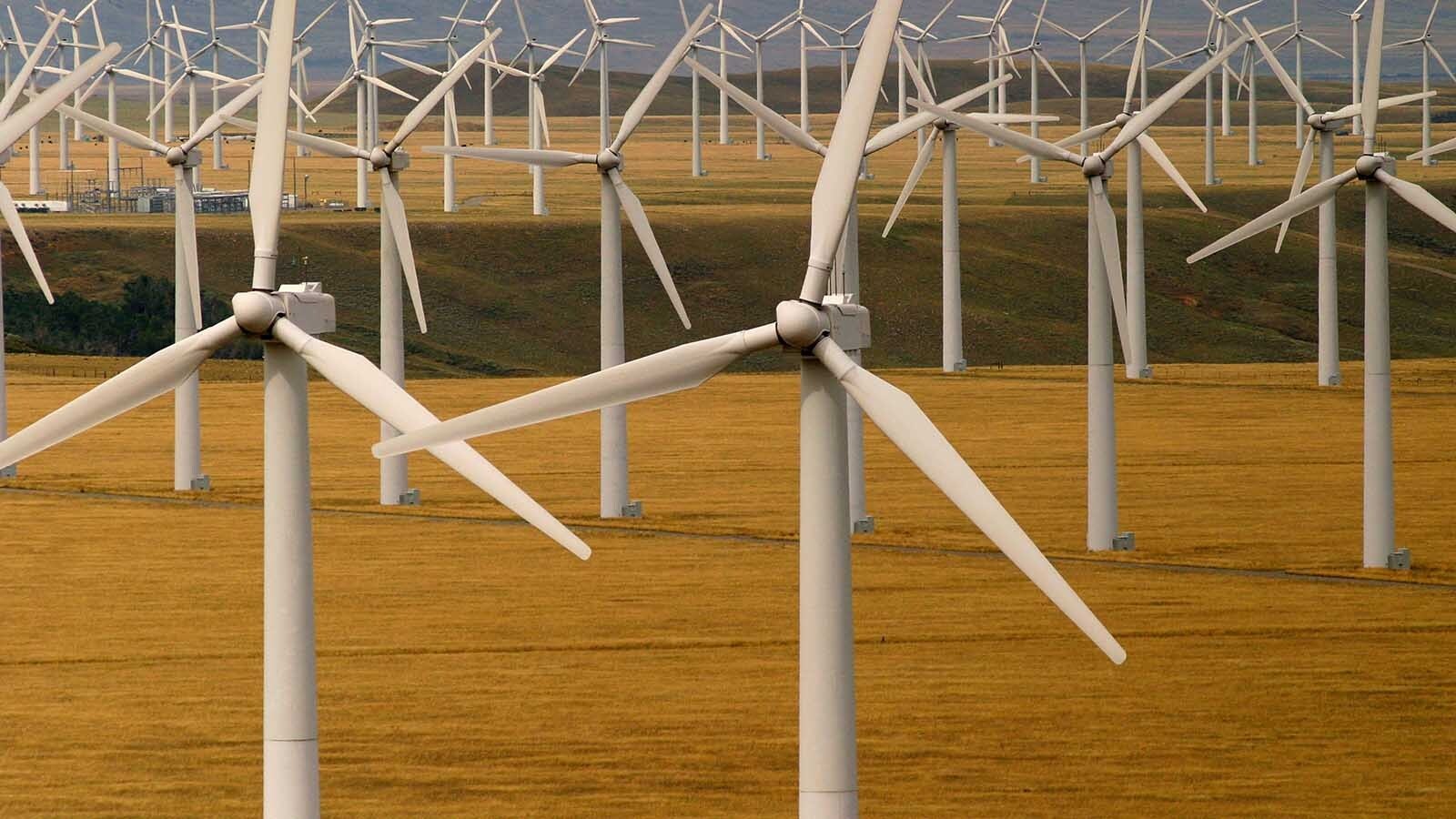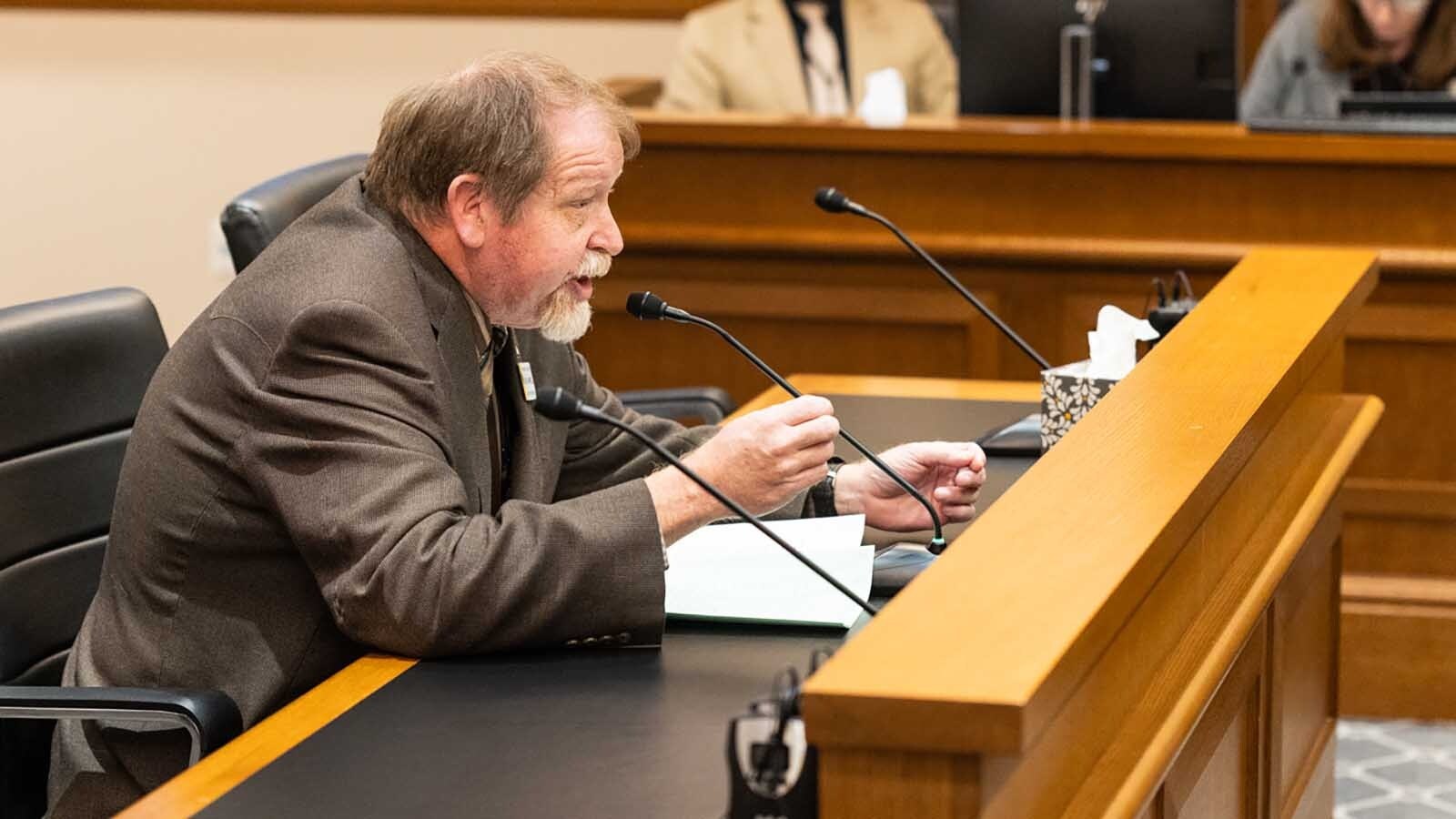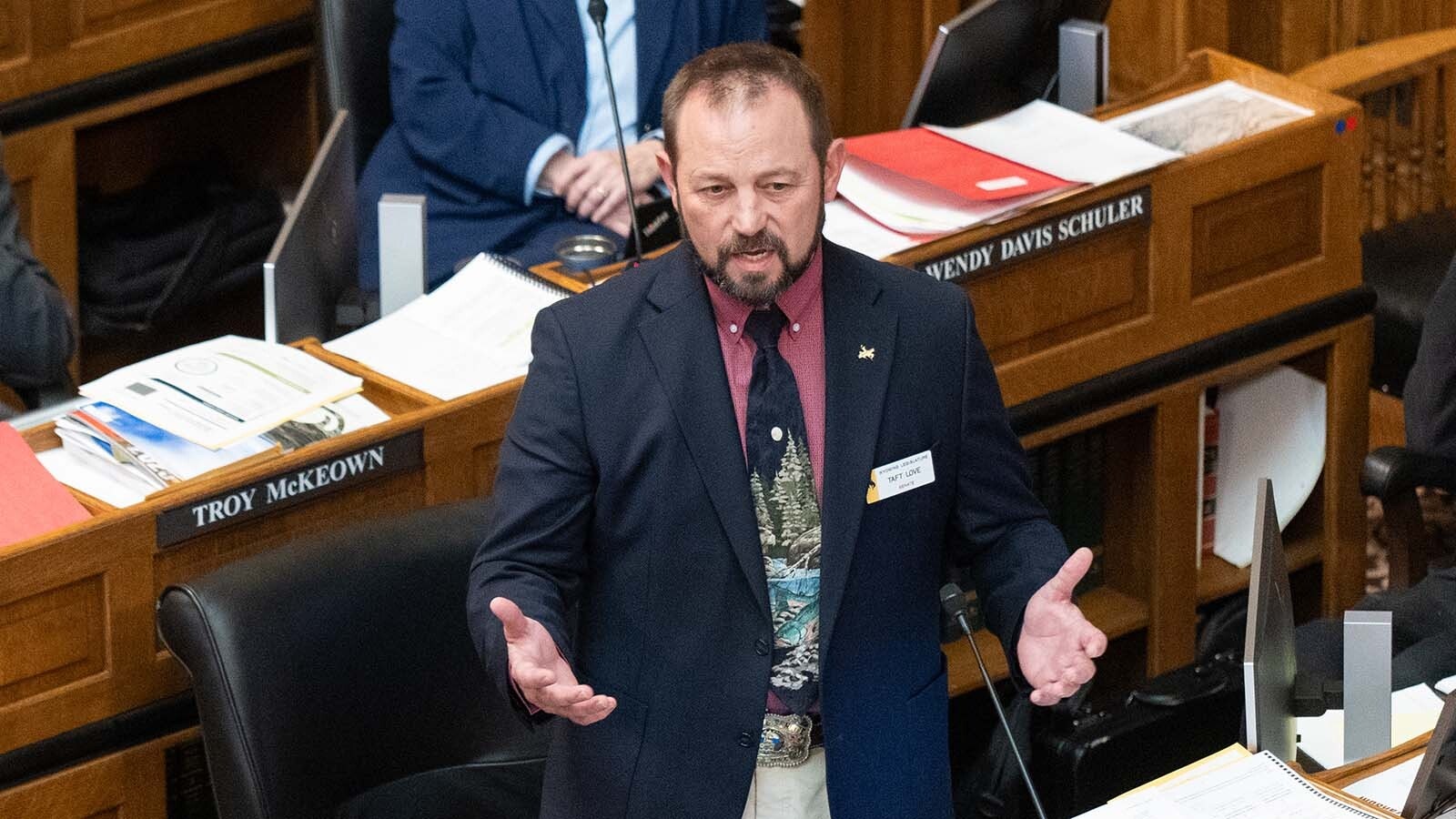Recently filed documents in a dispute between BNSF Railway and Evergy, an electric utility operating in Kansas and Missouri, reveal a play-by-play for not getting Wyoming coal to power plants during a critical period in 2022.
That’s when the utility claims the railroad failed to provide adequate service, prompting Evergy to seek more than $22 million in damages from the railroad.
The public filings are before the Surface Transportation Board, which is an independent federal agency responsible for regulating freight rail.
The Evergy-BNSF case offers a detailed look at how coal leaves colorfully named Wyoming mines like Rawhide and Black Thunder and makes it to customers, heading off to power plants spread out across the South and Midwest from Texas to Michigan.
In case documents, Evergy alleges BNSF violated federal law by restricting the number of coal trains allowed to operate between Wyoming's Powder River Basin and two generating stations in Kansas and Missouri.
The dispute highlights the ongoing importance of Wyoming coal to America's power grid and the complex logistics required to move millions of tons of it out of the state.
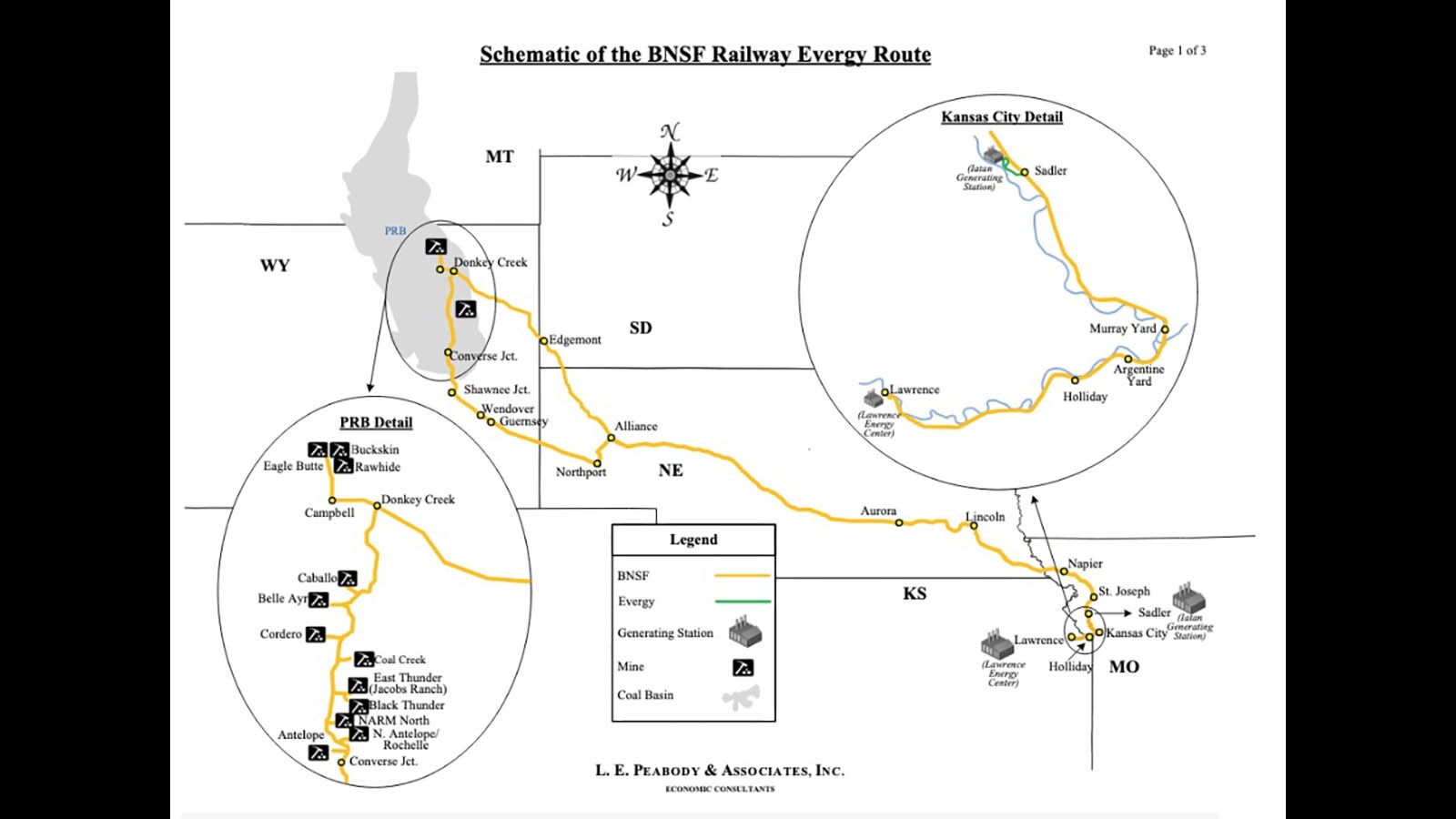
‘What Are You Doing?’
The Wyoming Mining Association (WMA) reports that in 2022, Union Pacific and BNSF Railway could not keep up with demand from producers trying to deliver Wyoming coal to out-of-state customers.
“2022 was a very frustrating year for the coal industry,” Travis Deti, WMA executive director, told Cowboy State Daily. “We saw a situation where natural gas prices really spiked significantly and the demand for Wyoming coal just went through the roof, and the railroads were just unable to handle it. “
Deti remembers coal producers confronting the railroads.
“What are you doing?” the said. “We need trains and they just couldn't deliver, and I think they took a pretty good tongue-lashing from not only the coal industry, but the congressional delegation and the governor's office.”
Deti said things have improved, but a lesson from 2022 remains.
“We lost out on 30 million tons of production, and the state lost out on about $60 million worth in revenue,” said Deti.
If there’s another surge in demand for Wyoming coal, will the railroads be ready?
“They have staffed up and my operators are almost in continuous touch with them,” Deti said. “They seem to indicate to us that they're prepared this time. So, time will tell.”
Evergy Vs. BNSF
The current dispute centers on coal shipments from Wyoming's southern Powder River Basin, where mines supply sub-bituminous coal.
Sub-bituminous coal has a lower sulfur content, making it popular with utilities like Evergy.
When this coal leaves a Wyoming mine, it travels 1,148 miles via BNSF's rail network to power Evergy's Iatan Generating Station near Kansas City and the Lawrence Energy Center in Lawrence, Kansas, according to the June 25 filing.
Evergy owns about 3,500 railcars — enough for about 26 complete trainsets — that carry Wyoming coal eastward through a route that includes stops in Alliance and Lincoln, Nebraska, before reaching the power plants.
The coal-fired facilities represent more than half of Evergy's generating capacity, making reliable rail service from Wyoming critical to keeping lights on for 1.35 million customers across Missouri and Kansas.
According to Evergy's complaint filed in January 2024, BNSF scheduled 6.3 million tons of coal for delivery in 2022, but delivered only 4.3 million tons, about 68% of what was requested.
The utility claims BNSF artificially limited the number of trainsets in service to just four for most of the year, down from the seven to eight sets historically required to meet seasonal demand.
"Throughout the first and second quarters of 2022, Evergy consistently protested BNSF's trainset limitations and warned BNSF that the resulting shortfalls in coal deliveries would threaten Evergy's ability to meet its reliability commitments," the company states in its filing.
The shortfall forced Evergy to implement "coal conservation" measures starting in April 2022.
This involved deliberately adding artificial "adders" to the prices Evergy offered for electricity generation in the regional power market.
By inflating bid prices above what they would normally charge, Evergy made it less likely that grid operators would call upon their coal plants to generate electricity during certain hours.
The strategy worked to preserve coal supplies but came at a significant cost, according to Evergy.
When the coal plants weren't selected to run, Evergy asserts it lost out on revenue it would have earned from selling electricity.
At the same time, as a load-serving utility responsible for meeting customer demand, Evergy still had to buy power from other sources to serve its customers — often at higher prices than what it would have cost to generate the power itself using Wyoming coal.
Evergy Metro's Iatan Generating Station received only 3.1 million of the 4.9 million tons scheduled, while Lawrence received 1.2 million of 1.4 million tons scheduled.
The utility calculated its damages at $16.9 million in lost opportunity costs and $4.6 million in additional power purchase expenses, plus $621,000 in extra coal handling and railcar storage costs.
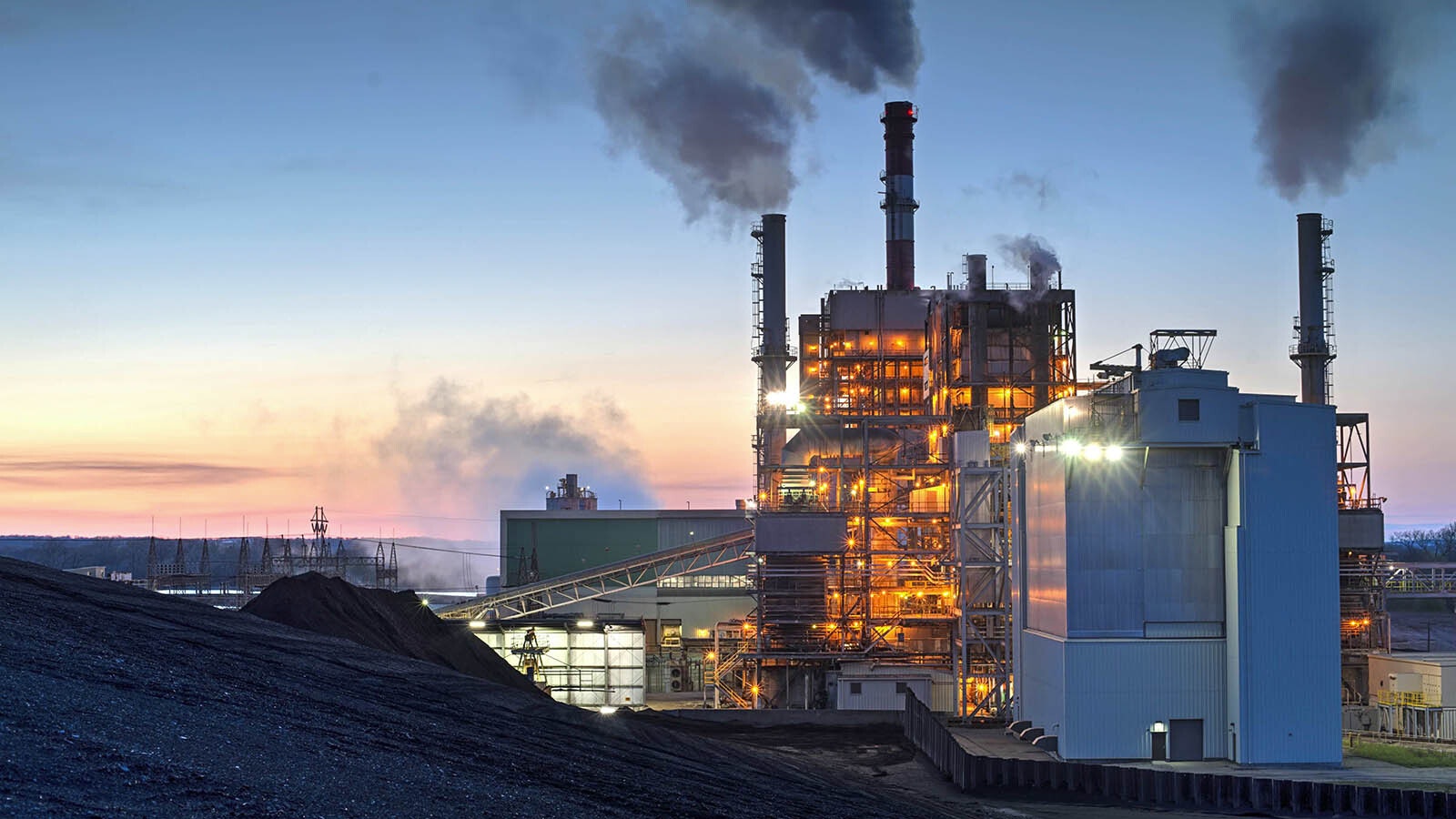
BNSF's Defense
BNSF paints a dramatically different picture of 2022, describing it as a year when the entire U.S. rail network was struggling to recover from unprecedented challenges.
In its motion to dismiss portions of Evergy's complaint, the railroad details how the post-pandemic economic recovery created severe congestion across America's freight rail system.
"As sections of the nation emerged from the pandemic lockdowns in the second half of 2021 at varying rates, demand for rail transportation spiked significantly," BNSF argued. "The combination of lack of employee, equipment and warehouse resources throughout the supply chain, along with railroad-specific challenges, resulted in network-wide fluidity problems."
BNSF specifically cited "historic snowfall in the Powder River Basin area during April 2022" as one factor that exacerbated service problems.
The railroad said it was forced to limit private railcar operations as part of a broader "service recovery plan" to prevent network collapse.
"Unfortunately, adding cars to a strained network had the opposite result, decreasing velocity and increasing dwell, leading ultimately to the delivery of less product for all of our customers," BNSF explained in regulatory filings.
"Velocity" is the measure of how fast train shipments move and "dwell" is time spent not moving, waiting at terminals and railyards.
The railroad noted that by late 2022, it had "largely restored service levels on its network to pre-pandemic levels."
Still, Evergy is seeking not only monetary damages but also a declaration that BNSF must accept sufficient private railcars to transport coal in the future.
BNSF argues such forward-looking requirements would be inappropriate given the unpredictable nature of coal demand.
In a case filing from 2024, the railroad cited a “dramatic change” in how much coal Evergy forecast for shipment out of Wyoming.
How much coal are we talking about here? That is unclear, as the actual volume data is redacted in the public version of the case filing.
Cowboy State Daily reached out to BNSF Railway, but the company did not respond to an interview request.
An attorney for Evergy directed questions to the June 25 case filing, stating the recent documents contain "any information that you may be seeking."
David Madison can be reached at david@cowboystatedaily.com.


